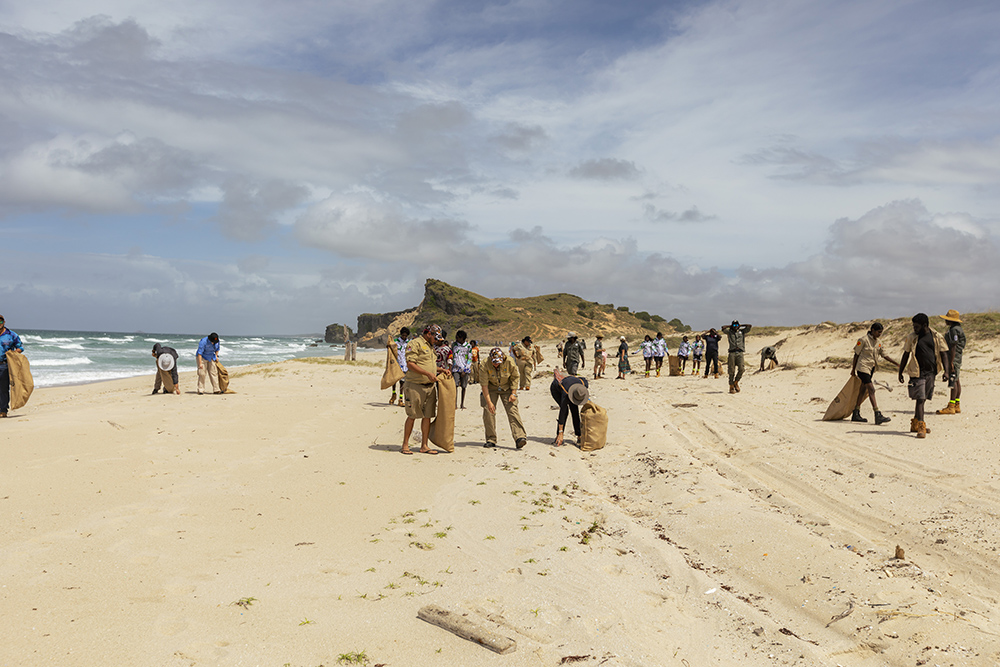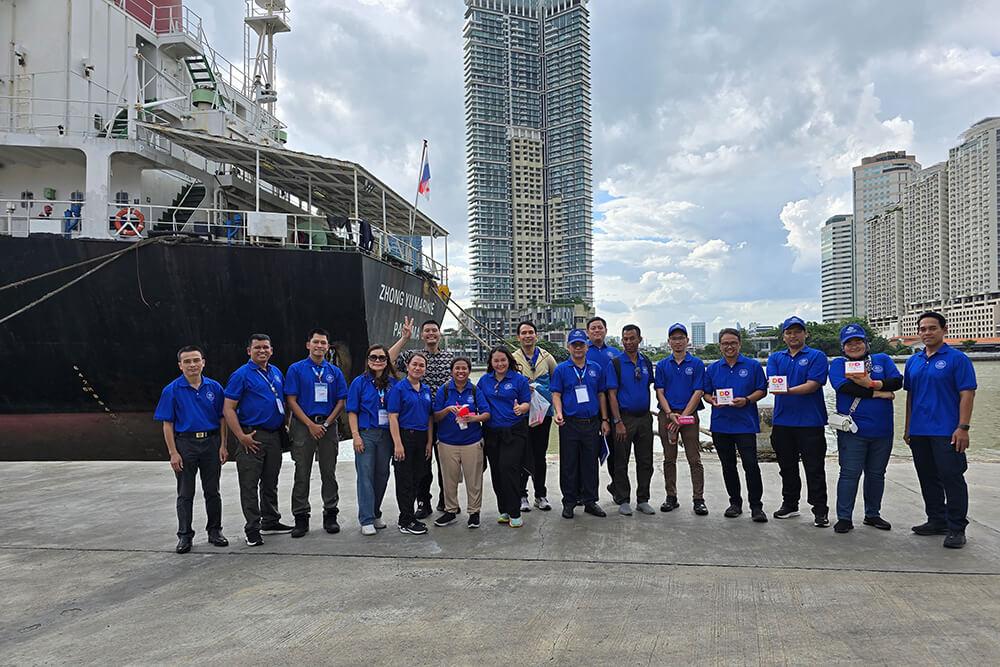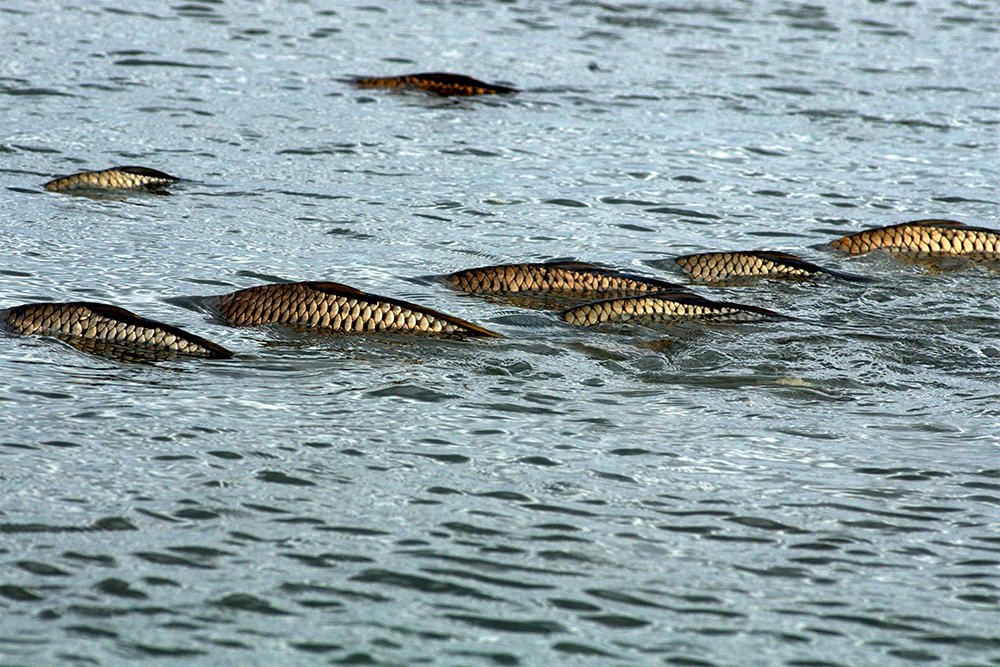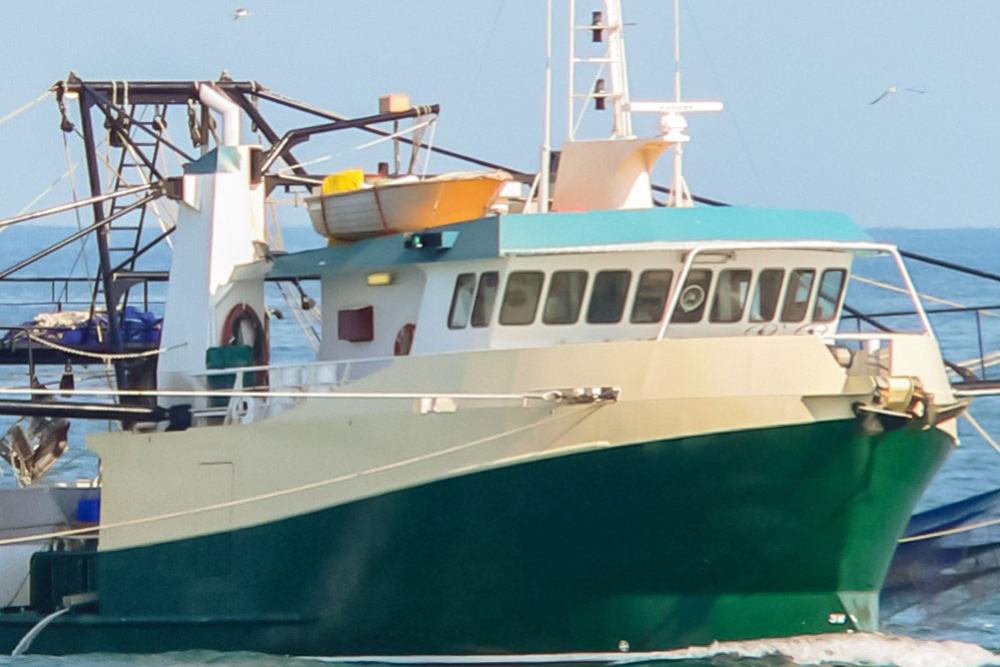More than 50 Indigenous rangers from 20 different Indigenous Ranger groups joined forces in an event supported by Parks Australia and the Department of Agriculture, Fisheries and Forestry to help manage marine debris and ghost nets in remote northern Australia.
The Indigenous rangers visited Gulkula in the Northern Territory as part of the 2023-24 ‘Rubbish on the Shore’ Ghost Net Think Tank forum from 30 April to 2 May. The event was organised by Agency Projects as part of their Innovative Solutions grant project funded by Parks Australia under the Ghost Nets Initiative.
The Director of National Parks, Ricky Archer, attended the event and delivered a keynote address.
“The Indigenous Ranger Coastal Cleanup program is a vital part of Parks Australia’s Ghost Nets Initiative. The Think Tank builds on that collaboration, bringing together many of the key players who are working together to tackle ghost nets and marine debris in northern Australia,” Mr Archer said.
The ‘Rubbish on the Shore’ event brought together Indigenous Rangers , scientists and researchers with professionals working within in the design, fashion and architecture fields, intersecting Indigenous innovation, art, design and science to address issues and opportunities around marine debris.
Deputy Secretary of Biosecurity, Justine Saunders said ghost nets cause significant environmental damage, introduce marine pests and synthetic materials and create safety hazards impacting shipping or navigation.
“It is important for our Indigenous rangers, who play a vital role protecting Australia’s northern coastline, to attend events such as the Think Tank,” Ms Saunders said.
“The event allowed Indigenous rangers to advise on practical elements of protecting our marine environment while broadening their networks and having meaningful dialogue on sustainable solutions and management technologies for ghost nets and marine debris.
“Ghost nets drift around the world, picked up by global currents and tides they continue to indiscriminately ‘fish’ impacting threatened and endangered species.”
Attendees were encouraged to offer their voices in this knowledge sharing and learning opportunity, to propose collaborative solutions to manage the global problem of abandoned, lost or otherwise discarded fishing gear, or ghost nets.
Ms Saunders said the Ghost Net Think Tank was designed to seed conversation and collaboration.
“The space provided a gathering of minds dedicated to finding solutions to pressing challenges of ghost net and marine debris pollution,” Ms Saunders said.
“The Think Tank showcased the journeys of individuals, groups and institutions and their dedicated and exciting work in this space.
“Participants had the opportunity to engage in conversation and immersive demonstrations which highlighted cultural, scientific, technological, and social ideas and solutions.
“Indigenous rangers care for Country and can strengthen northern biosecurity, by providing their guidance to ensure threats are identified early to help prevent pests and diseases from establishing, while also balancing the protection culturally significant sites.”

Photo: Agency Projects and Timothy Hillier



